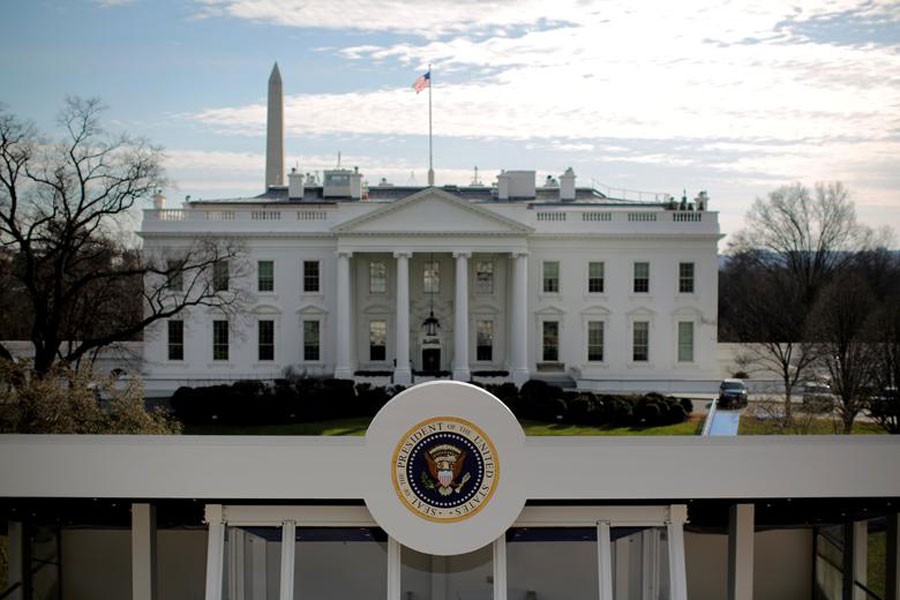So Donald Trump has been beaten at the election by Joe Biden. He refuses to acknowledge the outcome, though. But that really does not matter. He will go or will be made to go. Once that comes to pass, he will be up against a number of legal complications arising out of the lawsuits that have been filed against him over the years. And then there is the matter of his tax returns, an issue he has dodged for years.
Expect, therefore, for Trump to be in quite a quandary once he leaves, or is escorted out of, the White House. Do not expect him to turn into an elder statesman, for that quality is not in him. And if there is anyone expecting a Trump presidential library coming up, in emulation of some of his more illustrious predecessors, he should shake himself free of the thought. In these four years that he has been strutting around on the political stage in Washington, Trump has demonstrated nothing of the intellectual sort that can have him measure up to earlier former presidents. And, yes, do not expect him either to go on a lucrative lecture circuit. No one will invite him.
That is a sad reality, especially when you have observed over the years all these images of former presidents carrying on with life in ways that have helped keep them in the public eye. There are too all those men and a woman --- the latter being Hillary Clinton --- who in striving for the presidency have not quite succeeded in reaching the top of the greasy pole but then have gone on to reinvent themselves in their diverse ways. Think here of the very cerebral Adlai Stevenson who, losing the race for the White House twice to Dwight Eisenhower, ended up being US ambassador to the United Nations in the Kennedy administration. He would dearly have loved being Secretary of State, but Kennedy would not give him that position. Stevenson died after collapsing on a street in London in 1965.
Hubert Horatio Humphrey, having served as Vice President under Lyndon Johnson, battled Richard Nixon for the presidency in 1968. He lost by a narrow margin in popular votes and later went on to rejoin the Senate, where he had served for a good number of years before President Johnson picked him as his running mate in 1964. Humphrey would die of cancer. As for Johnson, who abandoned the idea of a second term in the White House in light of mounting trouble over his Vietnam policies, he retired to his ranch in Texas in early 1969. Loss of power did not make him happy. He died in January 1973. His successor Nixon, forced to resign over Watergate in 1974, lived for twenty years after leaving the White House. He wrote books, advised his successors, was invited to deliver talks on foreign policy and travelled to places like Beijing and Moscow and Europe.
Barry Goldwater, the Republican Senator beaten by Johnson at the 1964 election, lived on to become a powerful voice of conservatism in the Senate. He is remembered fondly in his native state of Arizona, where John McCain would one day rise as a formidable politician. Bill Clinton and George W. Bush have their presidential libraries as legacies, in much the same way that libraries were to come up for Nixon and Ronald Reagan after their exit from office. Edmund Muskie, whose presidential ambitions were scuttled in 1972, went on working as a Senator until President Jimmy Carter pulled him into the cabinet as Secretary of State. Hillary Clinton was a Senator when President Obama appointed her Secretary of State in his first administration. Senator John Kerry, who lost the race for the White House to President George W. Bush in 2004, became Obama's second Secretary of State in 2013.
Jimmy Carter served a single term as President. Defeated by Ronald Reagan in his bid for a second term in 1980, he went back to his native Plains, Georgia, to set up the Carter Centre. It is today an organization with global reach; and an ageing Carter, with wife Rosalynn, remains active on an international scale. Walter Mondale, Carter's Vice President, would lose a presidential election to Reagan in 1984. He would subsequently serve as ambassador to Japan. Nelson Rockefeller, the ambitious Republican liberal who could never make it to a presidential nomination, served as Vice President in Gerald Ford's short-lived administration.
Eugene McCarthy, the poet-cum-Senator who forced President Johnson into renouncing a second term through his strong showing at the New Hampshire primary in early 1968, was never able to achieve his presidential ambitions, though. He went on writing more and better poetry, till the end of his life. Michigan Governor George Romney sought the Republican presidential nomination in 1968, lost out to Richard Nixon and then became a member of the Nixon cabinet. His son Mitt Romney served as Governor of Massachusetts, before becoming the Republican challenger to Barack Obama in 2012. He lost the election. He is today a Senator from Utah.
Thomas E. Dewey, twice Republican candidate for the White House, lost to Franklin Roosevelt in 1944 and to Harry Truman in 1948. Adlai Stevenson, the Democratic standard bearer, was defeated by Dwight Eisenhower in 1952 and 1956. Richard Nixon lost to John Kennedy in 1960 but came back to win the presidency in 1968.
That's a panoramic view of presidents and would-be presidents in America, with democracy shining the light on politics. Donald Trump tries to put the lights out, which is a shame.
Syed Badrul Ahsan is a writer and senior journalist.


